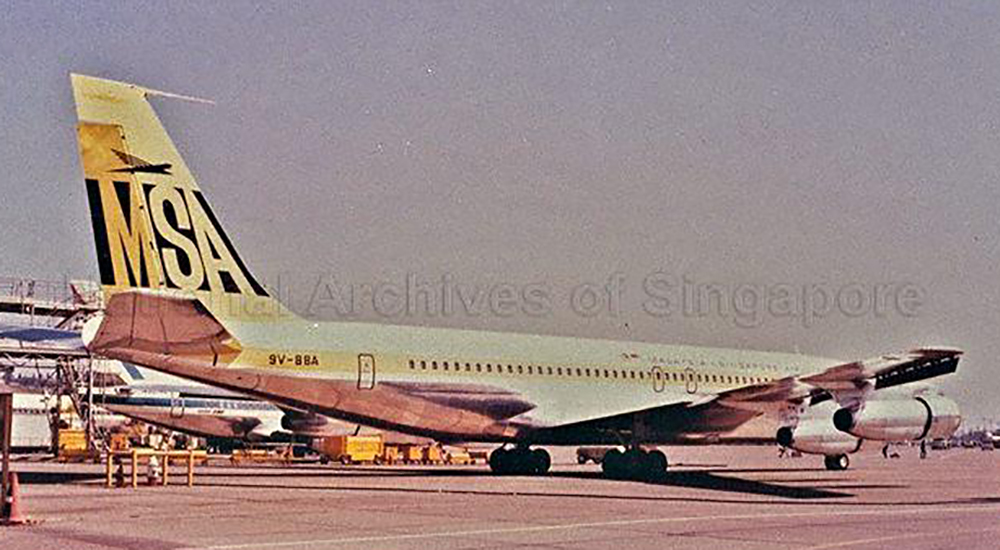Robert Kuok, touted as Malaysia's richest man, recently released his memoirs which details his observations about anything and everything — from his mother to Malaysian and Chinese politics; even taxes in Hong Kong.
Excerpts of his memoirs were published by the South China Morning Post (SCMP), which Kuok owned from 1993 to 2016.
HTHTs with Lee Kuan Yew
Kuok, also known as the "Sugar King" of Asia, for snagging an early investment in sugar production and capturing 80 per cent of Malaysia's sugar market in the 1960s, grew up in Johor Bahru and made great strides financially by investing heavily in Southeast Asia and Hong Kong.
His wide-ranging business network enabled him to hobnob with the who's who in the world, too, including the late Lee Kuan Yew. In his first published excerpt, he reveals that he had regular HTHT (heart-to-heart talks) with the late Lee in the mid-1970s:
"I often met with Singapore Prime Minister Lee Kuan Yew in a sitting room next to his office. His office would call my office at short notice when he had free time. In an early session, Kuan Yew explained that he wanted to have chats with me because I had a good feel for the scene in Malaysia. He had an embassy in Kuala Lumpur, but he wanted a different perspective. I was always very frank with him. If he asked questions for which I had no answer, I would tell him so.
We had many pleasant such sessions, sometimes over lunch. Unfortunately, these informal sessions ended when I moved to Hong Kong, as I could no longer pop around at a moment’s notice."
Kuok is also known to have referred to the late Lee with the high praise of "the greatest Chinese outside the mainland".
But the juicy bits come from Kuok's sharing about his term as chairman of Malaysian-Singapore Airlines for nearly two years. One excerpt from his memoirs details its acrimonious beginnings, which continued until the entity separated to form Malaysian Airline System (MAS) and Singapore Airlines (SIA).
All this was set against the backdrop of the tumultuous separation of Singapore from the Federation of Malaysia, and Kuok's account of the airline separation mirrors the bitter political break-up of both governments in 1965.
[related_story]
But first, a primer:
After Singapore departed from the Federation in 1965, the national carrier, Malaysia Airways, changed their name to Malaysian-Singapore Airlines (MSA) in 1966. MSA was jointly owned by both Malaysian and Singapore governments.
According to Kuok, the board of directors consisted of:
- One chairman (Kuok himself)
- Four directors nominated by the Malaysian government
- Four directors nominated by the Singapore government
- One director from a British shipping company
- Two directors from British Airways and Qantas Airways
- One Managing Director, on loan from British Airways
"You couldn't have had worse bickering"
As you can imagine, just like divorced parents handling joint custody of a child, things between the Malaysians and Singaporeans were hardly cordial.
"You couldn’t have had worse bickering than between the Singapore and Malaysian Government-nominated directors. If one side raised a point and asked for a resolution to be passed, the other side would object. Each side tried to peel off the skin to see what hidden agenda existed under that resolution."
Throughout the two years that Kuok ran the board as chairman, he noted that board meetings would often run up to 10 hours long, forcing him to employ drastic peace-making methods like hosting pre-meeting dinners for the government directors to get them to try to cooperate, only to have them return to square one the next day.
He was honest in his views about the relative performance of the Singaporean and Malaysian board directors:
"I was acting as referee, but I was seeing the poor Malaysian directors slaughtered at every meeting because the Singapore directors had minds as sharp as razors. In fairness, I must say the contribution to running the airline properly and efficiently came almost entirely from the Singapore side. The Malaysian side was too subjective and often allowed their feelings to influence their comments."
He knew at that point that the combined airline effort was not going to work out, in view of Malaysia's profit-making domestic flight routes and Singapore's realisation that the key to success lay in our own international traffic and position as an international airport.
The Break Up
After Kuok resigned, MSA's board was co-chaired by Tun Ismail Ali, then Central Bank Governor of Malaysia, and Joe Pillay, who was one of the Singapore appointed directors of MSA.
He also had some interesting comments about Pillay:
"In one sense, you could say Joe Pillay gave me the most trouble. In another sense, you could say he was the single most efficient director on the board. I admired his tremendous intellect, an intellect that had no superior in the Singapore/Malaysia region. His grasp of economics and cost accounting was fantastic... but he was rather highly strung. Joe is a lovely human being and a gentleman, but when it came to protecting his nation’s interest and discharging his job, he could come out unnecessarily aggressive."
Ultimately, both governments went their own ways: The Singapore side wanted to develop her international routes in order to expand the business while the Malaysian side preferred to focus on domestic travel before looking outwards.
MSA subsequently split into Malaysian Airline System and Singapore Airlines in 1972.
Top image via NAS
Here are some unrelated but equally interesting stories:
I tried giving people free stuff for three days and this is what I learned
I used to hate the smell of durian. Till I met you
Mums share their experience in helping their kids go cashless
Here's a totally unrelated but equally interesting story:
Mums share their experience in helping their kids go cashless
If you like what you read, follow us on Facebook, Instagram, Twitter and Telegram to get the latest updates.
